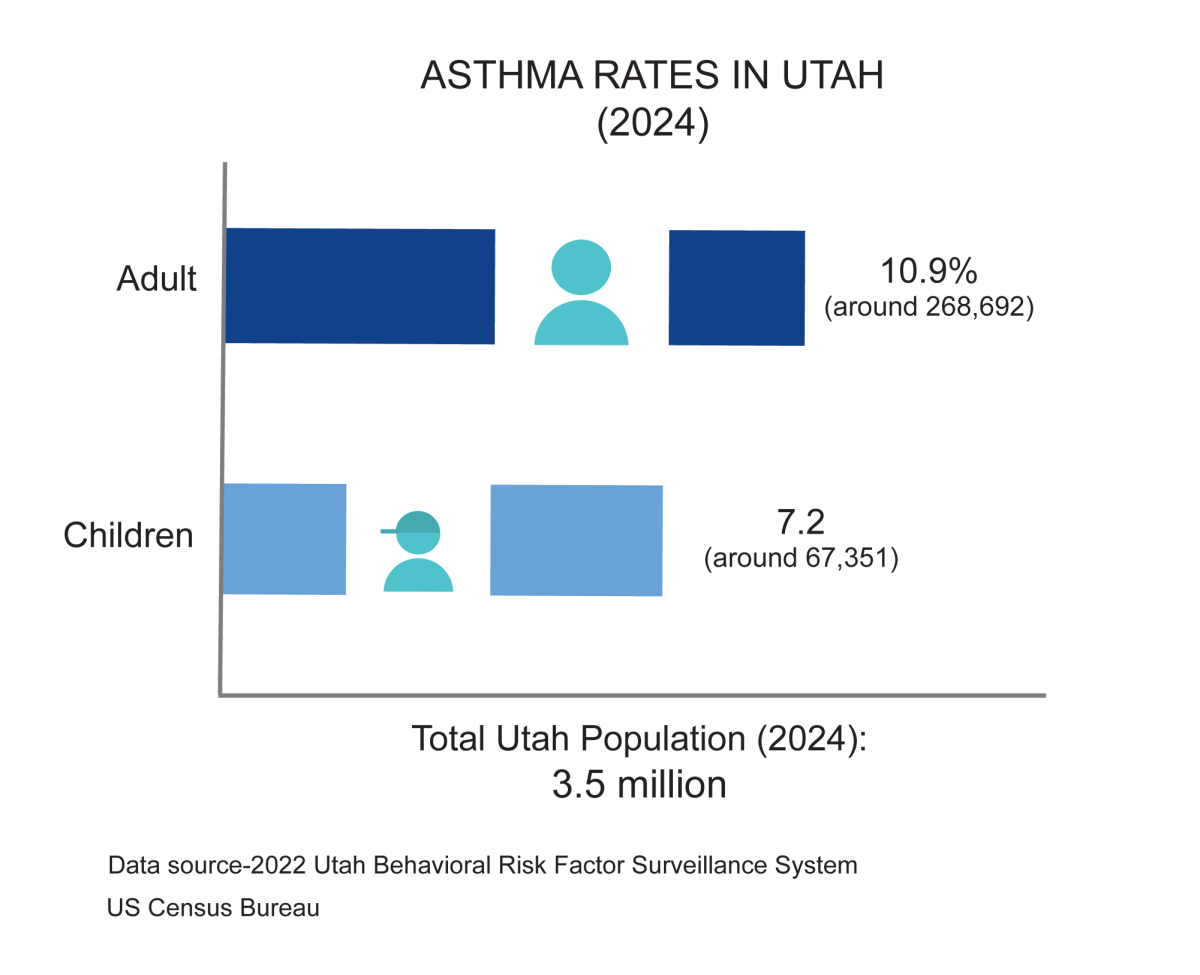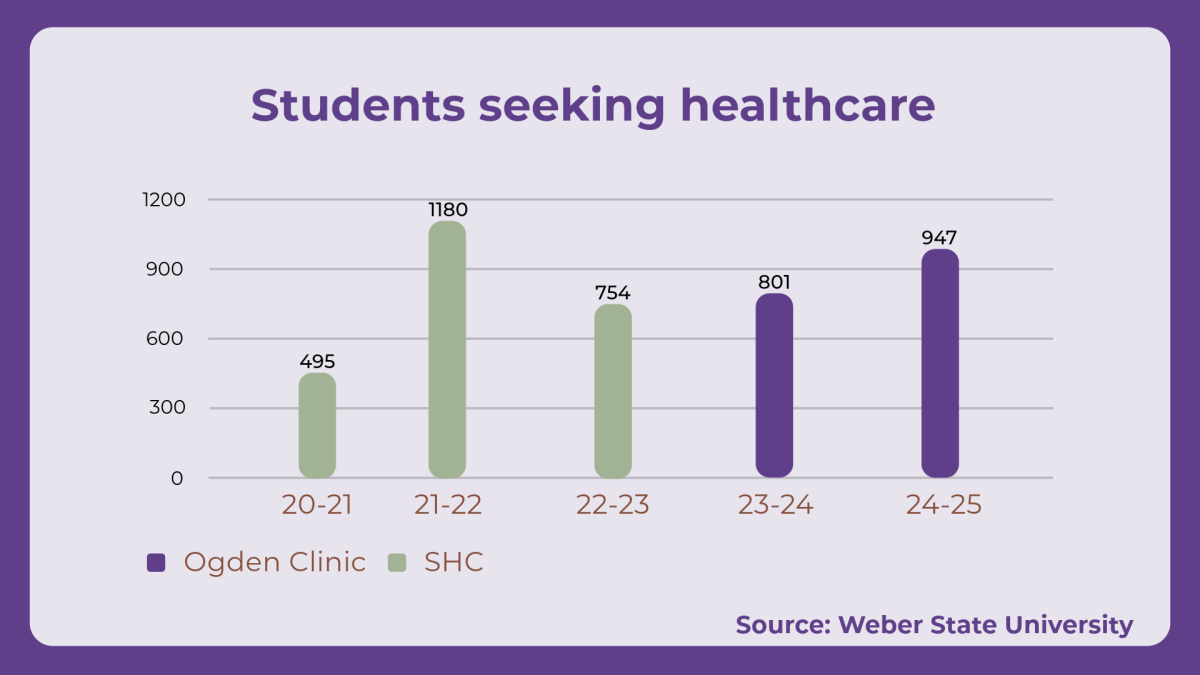
Weber State University students teamed up to research and learn about the effects smartphone addiction on test taking anxiety amongst college students.
Jake Ombach and J’lene Rea, along with assistant psychology professor Shannon McGillivary, wanted to learn more about cellphones and how those can cause anxiety.
“We use smartphones in a number of ways, obviously to connect with people but also for a source of information,” McGillivary said. “You can look up anything in a matter of minutes. The answer to almost everything is in your pocket.”
The concept of the study was to measure how students who suffer from cellphone addiction and are unable to use their cellphones during a test compare to those students who don’t have a smartphone addiction and are not allowed to use their cellphones during a test.
In testing centers at WSU, students are not allowed to use their cellphones at all during a test. In fact, a test may be terminated if a student’s phone rings while they’re in the testing center, even if it is put away in a pocket.
“I think it’s great they chose to conduct this study. I know plenty of people who should have been included,” Courtnie Rodriguez, WSU freshman, said. “I find this [study] very interesting.”
The researchers gathered students from the introductory psychology students on campus to conduct the study.
“We had a total of 103 [participants], forty-five males and 58 females,” said Ombach.
During their experiment, researchers asked participants to fill out a survey about the level of anxiety they were feeling at that time. Participants were also asked questions to gauge their level of smartphone addiction.
Before the test began, participants had their blood pressure and heart rate measured, as well as their body language.
They were then told that they would be learning material about certain countries that they might have had little knowledge about.
According to McGillivary, the information was obscure information that one might not necessarily know without looking the information up.
“Half of the participants were told they could use their cellphone during test while the other half was told that they could not use their phone,” McGillivary described.
After being shown the material on which they would be tested, participants who were told they could use their phone on the test were then told they would not be able to use their phone anymore.
“We had a switch condition for half our participants. Some were lead to believe they could use their phone and then told they could not and vice versa,” McGillivary said.
The student researchers found that those who have a smartphone addiction and were told they could not use their phone on the test experienced more anxiety than those who did not have a smartphone addiction.
“The majority of our results were what we expected them to be, and much of it was similar to other research that has been done,” Ombach said.
Overall, people who reported a smartphone addiction were more anxious about test taking than those who do not have a smartphone addiction.
According to McGillivary, there was a relationship between smartphone addiction and heart rate measures of anxiety.
“This study might show that people who suffer from cellphone addiction may experience more anxiety in regular school situations where they can’t look information up. They just have to know it,” McGillivary said.













